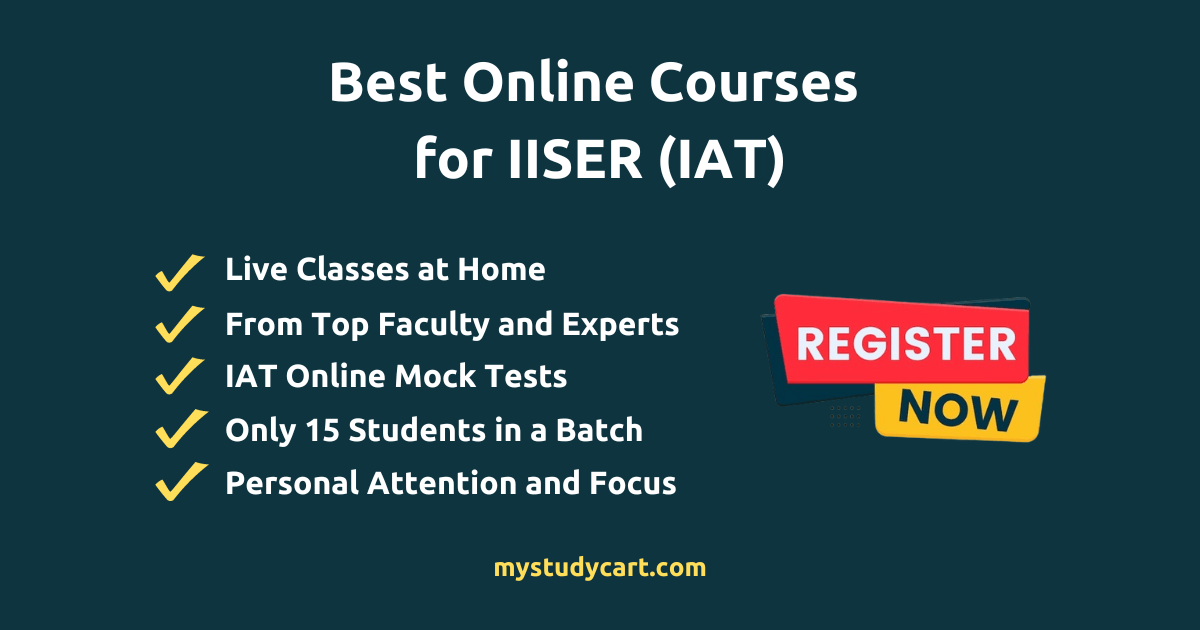
Becoming a scientist in India is a dream for many students, driven by curiosity and a passion for discovery. For students and parents unfamiliar with the path, it can seem daunting. This guide provides a clear roadmap on how to pursue a career in science after Class 12, including detailed information on preparing for prestigious institutions like the Indian Institutes of Science Education and Research (IISER).
Understanding the Role of a Scientist
A scientist conducts research to advance knowledge in a specific field, which can range from physics and chemistry to biology and environmental science. Scientists work in various settings, including universities, research institutions, government agencies, and private companies.
Key Steps to Become a Scientist in India
1. Choose the Right Stream in Class 12
To embark on the journey of becoming a scientist, you should opt for the Science stream in Class 11 and 12, focusing on subjects like Physics, Chemistry, Biology, and Mathematics. A strong foundation in these subjects is crucial for higher studies in science.
2. Excel in Board Exams
Perform well in your Class 12 board exams, as high marks are essential for securing admission to top universities and institutes. Aim for a score of 85% or above to increase your chances of getting into prestigious programs.
3. Appear for Entrance Exams
Several entrance exams can lead to a career in science. Some of the most important ones include:
- IISER Aptitude Test: This test is specifically for admission to IISERs (and IISc), which are among the best institutes for science education and research in India.
- JEE Advanced: Apart from engineering, IITs also offer integrated M.Sc. programs in science disciplines. Clearing JEE Advanced can open doors to these programs.
- NEET: For those interested in medical research, NEET is the gateway to undergraduate medical programs, which can lead to research opportunities in biomedical sciences.
4. Choose the Right Institution
Selecting the right institution is crucial for a successful career in science. Some of the top institutions in India include:
- IISERs: Known for their excellent research facilities and faculty, IISERs offer integrated B.S.-M.S. programs. The curriculum is research-oriented, providing a solid foundation for a career in science.
- IITs: Apart from engineering, IITs offer integrated M.Sc. programs in various science disciplines.
- IISc (Indian Institute of Science): IISc offers undergraduate and postgraduate programs in science and engineering, with a strong emphasis on research.
- National Institutes: Institutions like the National Institute of Science Education and Research (NISER) and the University of Delhi also offer excellent programs in science.
5. Pursue Undergraduate Studies in Science
Enroll in a B.Sc. or integrated B.S.-M.S. program at a reputed institution (top ones are given above). Focus on your studies, participate in research projects, and take advantage of internships and laboratory work to gain practical experience.
6. Engage in Research
Start engaging in research as early as possible. Join research projects, attend workshops, and seek opportunities to work with experienced scientists. Developing a research mindset and gaining hands-on experience are vital steps toward becoming a successful scientist.
7. Pursue Higher Studies
After completing your undergraduate degree, pursue a master’s degree (M.Sc.) in your chosen field. Following your master’s, aim for a Ph.D. program. A doctoral degree is often essential for a research career in academia and industry.
8. Publish Research Papers
Publishing your research in reputed scientific journals is crucial for establishing yourself in the scientific community. It showcases your work and helps you gain recognition and credibility.
9. Network with Peers and Mentors
Building a network of peers and mentors is essential for your career growth. Attend conferences, seminars, and workshops to meet other scientists and researchers. Networking can open doors to collaborative projects and job opportunities.
10. Stay Updated with Advances in Science
Science is a constantly evolving field. Stay updated with the latest research and advancements by reading scientific journals, attending conferences, and participating in continuous learning opportunities.
Prepare for IISER to Become a Top Scientist in India
IISERs are among the most sought-after institutions for aspiring scientists in India. Here are some tips to prepare for the IISER Aptitude Test (IAT):
- Understand the Syllabus: The IISER Aptitude Test covers subjects like Physics, Chemistry, Mathematics, and Biology. Make sure you are thorough with the IISER Class 11 and 12 syllabus of these subjects.
- Practice Previous Papers: Solve IAT previous years’ question papers to get an idea of the exam pattern and difficulty level.
- Time Management: Develop good time management skills to ensure you can complete the exam within the given time frame.
- Focus on Concepts: IISER tests your conceptual understanding rather than rote learning. Ensure you have a strong grasp of fundamental concepts.
- Seek Guidance: Register to coaching platforms like Mystudycart that specialize in IISER preparation to get expert guidance and study materials.
Conclusion
Becoming a scientist in India is a rewarding journey that requires dedication, hard work, and a passion for discovery. By following these steps and focusing on your academic and research goals, you can pave the way for a successful career in science. Remember, the journey is as important as the destination, and every step you take brings you closer to achieving your dream of becoming a scientist.
Mystudycart Student Success Story
M.K. Phaneesha wanted to become a scientist from very young age. He cleared IISER (IAT) with AIR 2025 by joining Mystudycart. Watch Phaneesha’s Mother sharing his overall experience.

